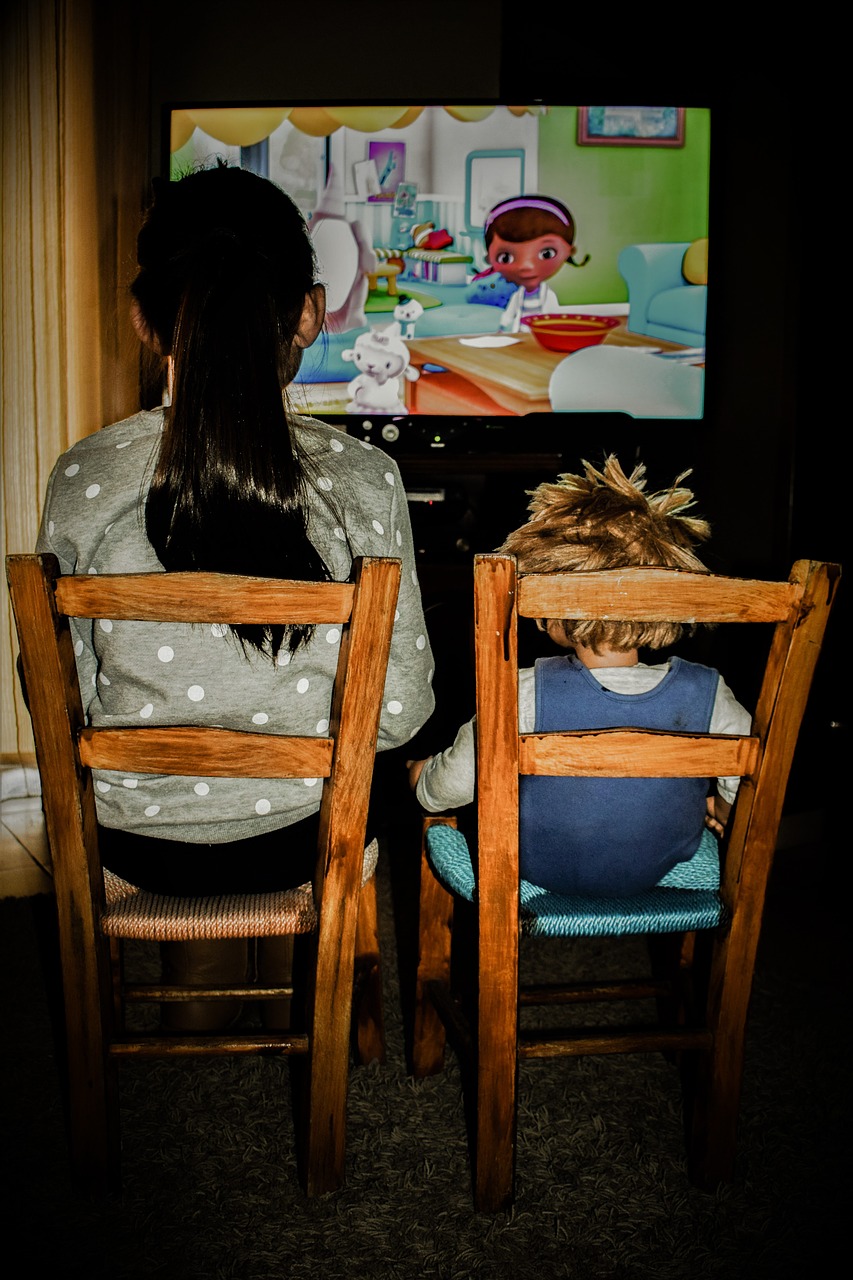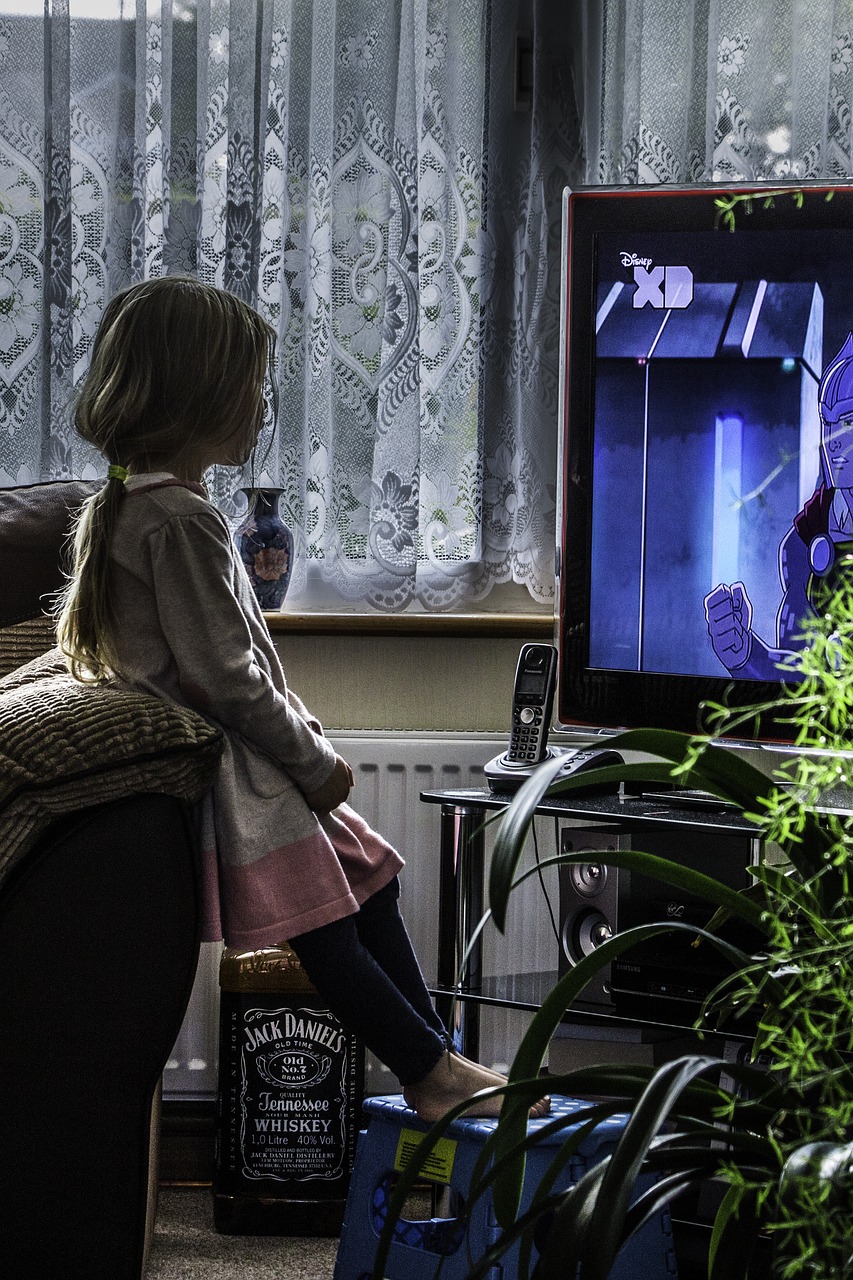
A new study has found a link between screen time and kids’ fundamental school-readiness skills in math, letters and words, and cognitive and social-emotional competencies.
We are all guilty of sticking our kids in front of the television so we can get a few things done, like make dinner or return a phone call. And yes, we feel badly about it sometimes, because it’s well known that too much screen time is associated with a higher risk of obesity in kids, among other potential problems. But now new research out of New York University finds there’s another reason parents should be as cognizant about limiting TV-time as possible: the more television kids watch, the less ready they may be for school.
Researchers say watching the tube for more than a few hours a day was associated with lower school readiness in kindergartners, especially among low-income families. Their findings appear in the Journal of Developmental & Behavioral Pediatrics

The study reinforces the American Academy of Pediatrics (AAP) recommendation that kids ages 2 to 5 engage in just one hour of screen-time per day. But I think I speak for most parents when I say this can be easier said than done. In fact, this newest study’s lead author Andrew Ribner, a doctoral candidate in the Department of Applied Psychology at NYU Steinhardt, said in a statement, “Given that studies have reported that children often watch more than the recommended amount, and the current prevalence of technology such as smartphones and tablets, engaging in screen time may be more frequent now than ever before.”
But frequent screen time can have real implications on kids’ development, according to the study. Researchers looked at 807 kindergartners of varying backgrounds. The kids’ parents reported family income, and the number of hours of TV the kids watched on a daily basis. (Kids’ video game, tablet, and smartphone engagement was not part of the study.)
Then, the peewee participants were assessed on fundamental school-readiness skills in math, understanding letters and words, and key cognitive and social-emotional competencies, such as working memory, cognitive flexibility, and inhibitory control.
When kids watched more than two hours of TV, their kindergarten-readiness was adversely affected. And as family incomes decreased, the link between TV viewing and drops in school readiness increased. Families near the poverty line (defined as having an annual income of about $21,200 for a family of four) saw the biggest drop.
Interestingly, researchers noted no link between school readiness and TV watching in high-income homes (around $127,000 per year for a family of four). Researchers suggest that kids from high-income families may be watching more educational content, and that parents may be able to watch more programs with their kids, which has been found to promote learning.
Another fascinating finding: TV viewing was negatively associated with math skills and executive function, but a similar link was not noted with letter and word knowledge. That may be because kids’ programs will tend to focus on literacy, not math development.
Want the latest parenting news? Sign up for our Parents Daily newsletter
“Our results suggest that the circumstances that surround child screen time can influence its detrimental effects on learning outcomes,” commented study co-author Caroline Fitzpatrick of Canada’s Université Sainte-Anne.
The takeaway for parents: Do your best to limit your child’s screen time. On that note, I’d better go tear my daughter away from Sofia the First.

4 Comments
Alfred200825
May 3, 2018 at 5:45 amIt is a well know fact that spending long time in front of a screen is very harmful to the eyes, and this is a practice we can’t neglect in our daily life. But no matter what how much time we spend in front of a screen, we should try as much as possible to protect our eyes from blue light popularly know as screen glare. This is important not only for babies bit for adults as well, I read an article about it somewhere and I decide to share it here since this post is saying almost the same thing but fail to talk about the dangers of long exposure of the eyes to blue light. You can protect your children from this danger by enabling night mode. Here is How to enable night mode on your PC and Android devices. Thanks Mrs Onyia for your nice articles, they are really helpful
Alfred200825 recently posted…What is Night Mode And How To Enable It On Your Android Device
Charm Baker (@charmbaker)
June 6, 2018 at 10:34 amInteresting report. It’s so sad that these days, screen time may include hand held devices even for the little tykes. We live in such a techie society. Great article.
Aman Vora
April 27, 2020 at 1:55 pmThanks for sharing such great information it is super helpful.
Tim
October 19, 2020 at 11:11 amAwesome article looking ahead to read more article like this ahead.